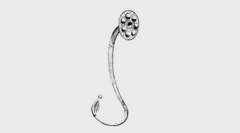Keywords
stereotypes, crime, national culture, Danish television
Abstract
In the fifth episode of the American television show The Bridge (FX, 2013-14) a serial killer is on the loose on the US-Mexico border. “What the hell is a serial killer?,” a Mexican drug lord asks one of his employees. The employee explains to the drug lord that a serial killer commits murder out of desire and sometimes lust rather than need. The paradox that a murderous Mexican drug lord might not know what a serial killer is can be seen as a humorous introduction to the rough world of Mexican drug cartels. In their world, killing is a natural and necessary part of doing business. It can also be read as a commentary on the United States, where people are apparently so bored with their suburban lives that killing can become a sport – because the serial killer turns out to be an American, of course. In Denmark it is common knowledge what a serial killer is. Everyone who has seen the films The Silence of the Lambs (1991), Se7en (1995), or one of the other popular American fictional features or documentaries about serial killers frequently shown on Danish screens knows the type. In Danish history there has not been a single serial killer that fits the profile of the meticulous, deliberate mass murderer so oft en depicted in American productions like those mentioned above. Yet the fact that The Bridge is a remake of the Danish/Swedish television series Bron|Broen—a show featuring an American-style Danish serial killer and humorous negotiations of the differences between Danish and Swedish national cultures, but no drug lords—suggests that these cultures share some common fears.
Recommended Citation
Gemzøe, Lynge Stegger
(2017)
"Transformations of National Culture in Bron|Broen and The Bridge,"
The Bridge: Vol. 40:
No.
1, Article 10.
Available at:
https://scholarsarchive.byu.edu/thebridge/vol40/iss1/10
Included in
European History Commons, European Languages and Societies Commons, Regional Sociology Commons


